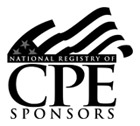
View Details/Register
View Details/Register
View Details/Register
View Details/Register
View Details/Register
View Details/Register
CPA - small firm
CPA - medium firm
CPA - large firm
All businesses––and all accountants––have a vested interest in virtue. Business is dependent on the moral and cultural institutions of a free society. The economic and ethical point of a business entity is to serve others. Business is a morally serious enterprise, in which it is possible to act either immorally or morally. It requires moral conduct to thrive in the long run. Yet business ethics means a great deal more than obeying the law and the various accountancy acts and regulations. It means imagining and creating a new sort of world based upon the principles of individual creativity, community, altruism, and the other virtues that make up the spirit of enterprise. Ethical behavior of accountants is expected each and every day––in and out of the practice of accountancy. Failure to follow ethical behavior jeopardizes your reputation, which comprises your personal and professional future. What ethical obligations do you have to your customers, employees (or employer), team members, and outside stakeholders? What impact have the recent accounting scandals had upon the profession, and how can it prevent repeating those ethical lapses? Major Topics What does it mean to be ethical—how do we know when we’re behaving correctly? Immanuel Kant’s Categorical Imperatives questions Adam Smith’s Invisible Hand
-
Gain an understanding of Utilitarianism, Deontology, Virtue Ethics, and Rights Theories.
-
Gain an appreciation of what moral philosophers thought about enterprise and ethics.
-
Why markets are a self-regulating system and reputation is often more important than regulation.

Ronald Baker
VeraSage
Founder of the VeraSage Institute
ron@verasage.com
(707) 769-0965
Ronald J. Baker started his CPA career in 1984 with KPMG’s Private Business Advisory Services in San Francisco. Today, he is the founder of VeraSage Institute—the leading think tank dedicated to educating professionals internationally—and a radio talk-show host on the www.VoiceAmerica.com show: The Soul of Enterprise: Business in the Knowledge Economy. As a frequent speaker, writer, and educator, his work takes him around the world. He has been an instructor with the California CPA Education Foundation since 1995 and has authored fifteen courses for them, including: You Are What You Charge For: Success in Today’s Emerging Experience Economy (with Daniel Morris); Alternatives to the Federal Income Tax; Trashing the Timesheet: A Declaration of Independence; Everyday Economics; Everyday Ethics: Doing Well by Doing Good; The Best Business Books You Should Read; Pricing on Purpose: Creating and Capturing Value; Measure What Matters to Customers; and Innovating Your Business Model. He is the author of six books, including: Professional’s Guide to Value Pricing; The Firm of the Future: A Guide for Accountants, Lawyers, and Other Professional Services, co-authored with Paul Dunn; Pricing on Purpose: Creating and Capturing Value; Measure What Matters to Customers: Using Key Predictive Indicators; and Mind Over Matter: Why Intellectual Capital is the Chief Source of Wealth; and his latest book, Implementing Value Pricing: A Radical Business Model for Professional Firms.
Ron has toured the world, spreading his value-pricing message to over 110,000 professionals. He has been appointed to the American Institute of Certified Public Accountant’s Group of One Hundred, a think tank of leaders to address the future of the profession; named on Accounting Today’s 2001, 2002, 2003, 2004, 2005, 2006, 2007, 2011, 2012, and 2013 Top 100 Most Influential People in the profession; voted number six and nine of the Top ten Most Influential People in the profession in 2012 and 2013; selected as one of LinkedIn’s 150 Influencers; and received the 2003 Award for Instructor Excellence from the California CPA Education Foundation. He graduated in 1984, from San Francisco State University, with a Bachelor of Science in accounting and a minor in economics. He is a graduate of Disney University and Cato University, and is a faculty member of the Professional Pricing Society. He presently resides in Petaluma, California.
- To receive CPE credit, you must register for the webinar before it starts.
- CPE is available to all eligible participants within 24 hours of each webinar.
- To receive CPE for multiple attendees, at least one person must sign up for the webinar. The post-webinar email contains a link to instructions for the proctor letter. Alternatively, you may log in to your account following the webinar and click on the MY ACCOUNT button to find a link to instructions. For paid courses, payment needs to be made for each attendee before credit will be issued.

NASBA Approved
CPAacademy.org (Sponsor Id#: 111889) is registered with the National Association of State Boards of Accountancy (NASBA) as a sponsor of continuing professional education on the National Registry of CPE Sponsors. State boards of accountancy have final authority on the acceptance of individual courses for CPE credit. Complaints regarding registered sponsors may be submitted to the National Registry of CPE Sponsors through its website: www.nasbaregistry.org.
CPAacademy.org 1685 S. Colorado Blvd, Suite #205, Denver, CO 80222





